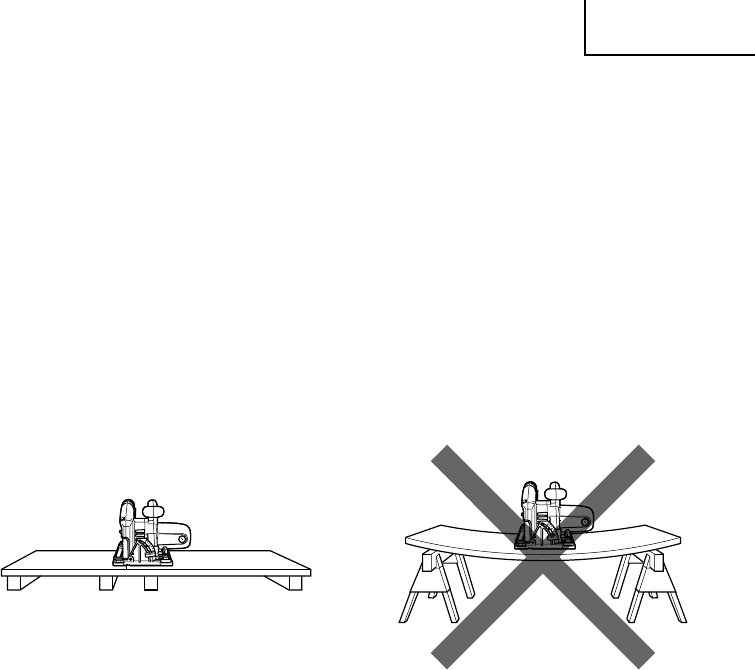
English
7
12. Maintain a firm grip on the saw and position your body and arm in a way that allows you
to resist KICKBACK forces. KICKBACK forces can be controlled by the operator, if proper
precautions are taken.
13. When blade is binding, or when interrupting a cut for any reason, release the trigger and
hold the saw motionless in the material until the blade comes to a complete stop. Never
attempt to remove the saw from the work or pull the saw backward while the blade is
in motion or KICKBACK may occur. Investigate and take corrective actions to eliminate
the cause of blade binding.
14. When restarting a saw in the workpiece, center the saw blade in the kerf and check that
teeth are not engaged into the material. If saw blade is binding, it may walk up or
KICKBACK from the workpiece as the saw is restarted.
15. Support large panels to minimize the risk of blade pinching and KICKBACK. Large panels
tend to sag under their own weight. Supports must be placed under the panel on both
sides, near the line of cut and near the edge of the panel as shown in Fig. 1.
To minimize the risk of blade pinching and kickback. When cutting operation requires the
resting of the saw on the work piece, the saw shall be rested on the larger portion and the
smaller piece cut off.
To avoid kickback, do support board Don't support board or panel away
or panel near the cut. from the cut.
Fig. 1 Fig. 2
16. Do not use dull or damaged blade. Unsharpened or improperly set blades produce
narrow kerf causing excessive friction, blade binding, and KICKBACK.
17. Blade depth and bevel adjusting locking levers must be tight and secure before making
cut. If blade adjustment shifts while cutting, it will cause binding and KICKBACK.
18. Use extra caution when making a “Pocket Cut” into existing walls or other blind areas.
The protruding blade may cut objects that can cause KICKBACK.
19. Hold tools by insulated gripping surfaces when performing an operation where the
cutting tool may contact hidden wiring or its own cord. Contact with a “live” wire will
make exposed metal parts of the tool “live” and shock the operator.
20. Never touch moving parts.
Never place your hands, fingers or other
body parts near the tool’s moving parts.
21. Never operate without all guards in place.
Never operate this tool without all guards or safety features in place and in proper
working order. If maintenance or servicing requires the removal of a guard or safety
feature, be sure to replace the guard or safety feature before resuming operation of the
tool.


















